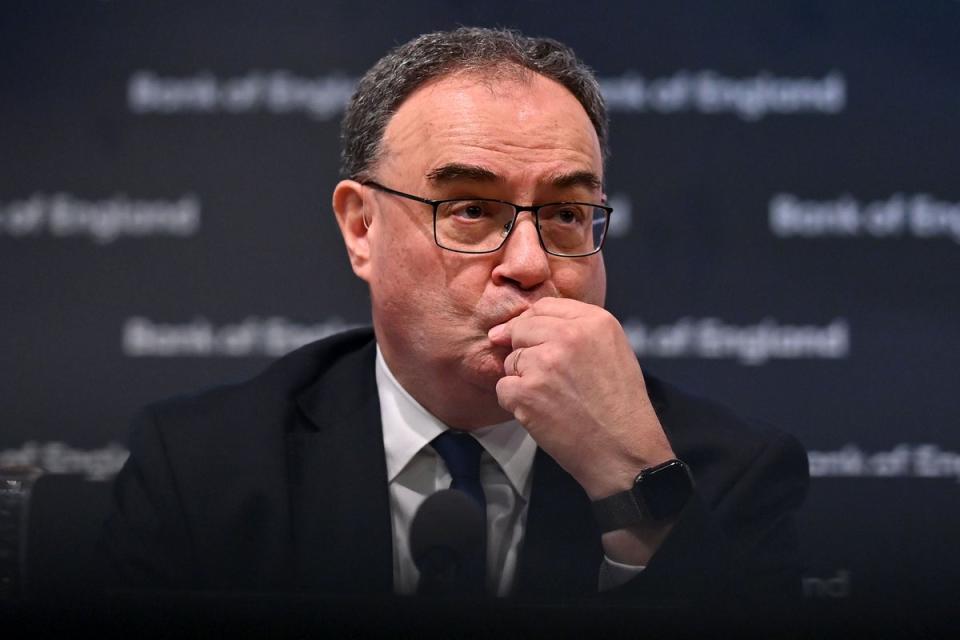Pressure is on for Bank of England interest rate cut as other central banks act

The City was readying for a summer of falling interest rates today, after the first cuts from major central banks added to the pressure on the Bank of England to join in.
Canada became the first G7 nation to reduce benchmark borrowing costs. The milestone move for the club of rich-world nations came overnight. Switzerland took similar action last month.
Rate-setters at the European Central Bank followed today with a quarter-point cut to extend the trend. They said: “Underlying inflation has also eased, reinforcing the signs that price pressures have weakened, and inflation expectations have declined at all horizons.”
The Bank of England will discuss following suit when its Monetary Policy Committee meets in two weeks’ time. But Rishi Sunak’s decision to call a general election for July 4 means the City now expects action later in the summer, after the voting is over.
September is now seen as most likely timing for the long-awaited turning point.
Before the prime minister decided to go to the country, markets were putting the chances of a cut this month at around 50%. After Sunak’s rain-swept Downing Street announcement, the odds on a June rate cut also got a soaking. They have crashed to just 6% today, even after the wider action from other central banks.
And hopes for a June move from the Monetary Policy Committee were already fading signs of stickiness in wages data closely watched by the BOE’s governor, Andrew Bailey, and rest of the MPC.
Nonetheless, there were also some warnings over a wildcard factor into the June 20 rate call: The BOE’s much-cherished full autonomy.
James Smith, developed markets economist at ING, said: “Don’t assume the Bank won’t move in June just because there’s an election coming.
“BOE independence is a well-established and respected principle among the major parties, and a rate cut has been telegraphed long before the election was called.”
Nonetheless, end of the current 15-year peak to the UK’s 5.25% benchmark cost of borrowing is likely later in the summer. It has been in place since August last year, after a run of 14 consecutive hikes took it there, beginning in December 2021.
When the cut comes it will be the first in the UK since the onset of the pandemic. It will cut the cost of millions of loans and mortgages, freeing up household budgets for a much-needed spending boost that could ride to the rescue of the UK’s sputtering economy.
The size of the cut is likely to be a quarter-point, the same as that made in Canada and expected from the ECB.
There are hopes that the impact of lower rates will boost spending without breathing new life into inflation, with the consumer price index back on the brink of the BOE’s official 2% target.
CPI’s double-digit peak, stoked by soaring energy prices after Russia’s invasion of Ukraine, now feels like a distant threat.
Russ Mould, at broker AJ Bell said: “We’re now beginning the next phase in the cycle where inflationary pressures ease and central banks move to a new playbook to help prop up a flagging economy and make life easier for consumers and businesses who have had to stomach sky-high borrowing costs.”
The most influential central bank in the world – the US Federal Reserve – is expected to wait even longer to start cutting rates, and also has a looming election to consider.
With the presidential election due in November, the Fed looks set to hold off until December, according to current market pricing.

 Yahoo Finance
Yahoo Finance 